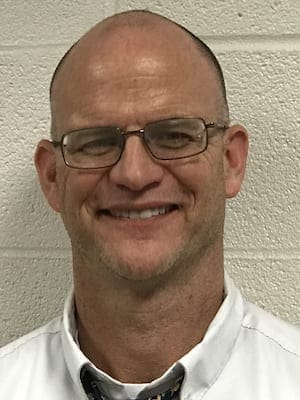Those who fly rebel flags from pick-up trucks should team up with advocates of undocumented immigrants, for they are making basically the same case.
The case is skeptical of legalism, rooted in an expression of the Christian faith, committed to the traditional work ethic and dismissive of the idea that children are to blame for the action of their parents.
First, they have a similar relationship to the national government.
For the rebel, St. Andrew’s cross implies a “higher” Christian law than that of the Constitution, which rebels argue justified secession.
They can point to a U.S. history replete with moral heroes who broke the law in the name of a higher law.
Examples include Martin Luther King Jr., Rosa Parks, Susan B. Anthony, John Brown, Henry David Thoreau, Thomas Jefferson, John Hancock and the many anonymous participants in the Boston Tea Party.
Closer to home, we celebrate our moonshine and bootlegger heritage when we root for our favorite NASCAR driver.
Likewise, undocumented immigrants broke exactly one law in order to help their family. Most of us see our duty to our family as our most sacred obligations.
“Man turns his back on his family, well he just ain’t no good,” sings Bruce Springsteen in a little-known song titled “Highway Patrolman.”
The choice of the undocumented was, in fact, their family or the law, given the poverty they knew at home and the near impossibility of being granted immigration papers.
At any rate, kids placed under the Deferred Action for Childhood Arrivals (DACA) policy are not currently undocumented.
They have proven that given the chance they are more than willing to fill out the paperwork necessary to “get legal.”
Thus, the “they just need to get legal” argument, which is really the “Trump” card of the nativist movement, is out.
Does this strained relationship make either group un-American?
Second, both groups have a culturally rooted faith.
To the most generous minded, the flag flies the St. Andrew’s cross, so named for the apostle who continued to preach while being crucified on a cross shaped like an X.
It represents the answer of today’s southerner to the liberal, morally relativistic culture of New York or Los Angeles. “Duck Dynasty” has an integrity and authenticity lacking in “Sex in the City.”
Many of my immigrant students come from large, happy families who go to church.
At a time when we lament the decline of churchgoing all over the country, Catholic churches are packed with Latino and Latina worshippers.
I once had a student crawl bleeding on his knees to church in gratitude for receiving his residence “papers.”
The smashing success of the pope’s recent U.S. visit suggests that if there’s a “Great Awakening” out there somewhere, it’s coming out of Latin America.
Third, an emphasis on work ethic is also held in common.
I often see U.S. and rebel flags flying side by side. Here, the rebel yearns for a lost Garden of Eden where your kids get a fair shake if they are willing to work hard enough, if they are tough enough and strong enough and have enough faith.
The rebel sees himself as fighting for U.S. core values eloquently described in many country songs, not the moral relativism, hedonism and misogyny glorified so often in rap. Out here in the sticks, the ideals of our youth have to be real.
To quote another wonderful Bruce Springsteen song titled “The River,” “Is a dream a lie if it don’t come true or is it something worse?”
My DACA kids don’t buy that line for a second. They haunt me with those smiling innocent eyes, the windows into the souls of people who have the audacity and the innocence to believe in America.
Their parents and I have told them stories of a place that rewards faith and hard work, that here you get a fair shake, that this is a land of hope and dreams and real opportunity.
They believe. I need them to be right. For these kids, we must all try to stand in the gap between the idea of America and its harder reality.
A fourth area of commonality is the idea that “the past is the past.”
My rebel friend also argues that whatever the sins of our fathers, it’s best to leave the worst stories of racism in the distant past.
Southern whites who don’t use the “n-word” and don’t plan lynchings expect not to be associated with the most troubling aspects of our racial history.
Why? We’re not personally responsible for it. We didn’t do it, so we shouldn’t be punished for our associations with those who did things like this, even misdeeds in the recent past of the civil rights era.
Well, fine, you didn’t do it so it’s not your fault. But neither should my DACA kids be held accountable for lawbreaking.
They didn’t make the decision to break the law: their parents did. They shouldn’t be punished for what their parents did. That’s un-American.
So it turns out that the rebel and the immigrant have more in common than we might expect.
But there’s still one key difference: The rebel can live here and fly his flag without fear of being kicked out of the country. The immigrant can’t. It’s time to rectify that.
 Sean McKenzie is a Methodist in Calhoun, Georgia, who teaches high school and holds a doctorate in political theory from the University of Florida.
Sean McKenzie is a Methodist in Calhoun, Georgia, who teaches high school and holds a doctorate in political theory from the University of Florida.

